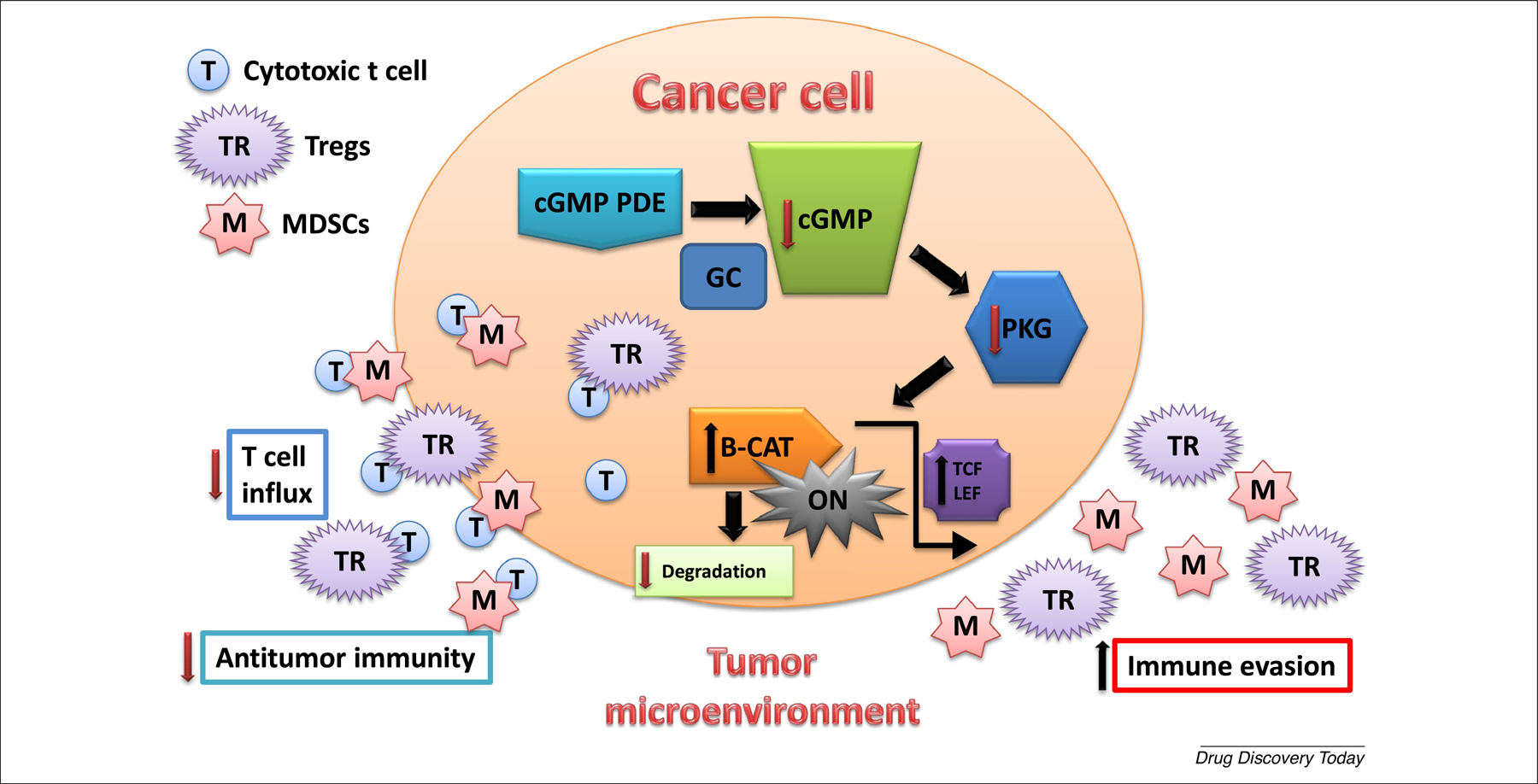Figure 1.

Phosphodiesterase 5 (PDE5) and PDE10 activity increase cancer cell immune evasion. PDE5 and PDE10 are co-expressed in cancer cells and function to maintain low intracellular cGMP levels that suppress PKG phosphorylation of β-catenin (B-CAT), which allows B-CAT to activate Tcf/Lef-mediated transcription as result of Wnt stimulation or mutations in B-CAT or upstream regulators (e.g., APC). Genes transcribed by Tcf/Lef encode proteins essential for proliferation and survival of cancer cells (e.g., cyclin D, survivin, and Myc). Activated B-CAT can also increase in cancer cell immune evasion by decreasing cytotoxic T cell infiltration to the tumor site resulting in the increase in the immunosuppressive activity of regulatory T cells (Tregs) and myeloid-derived suppressor cells (MDSCs) within the tumor microenvironment. cGMP is physiologically induced by guanylyl cyclases (GC), and regulated by cGMP PDE isozymes.
